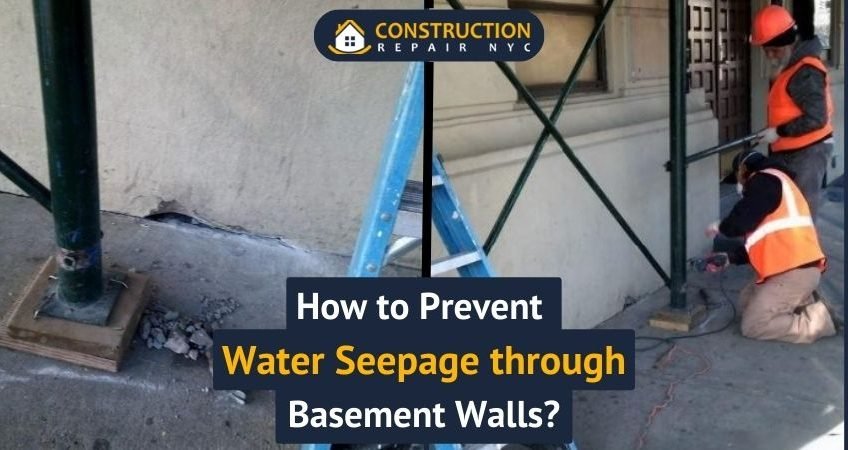Do you have damp basement walls? It is a definite sign of water seepage, common for most property owners. Cities like the Bronx, Queens, Manhattan, and Westchester receive heavy precipitation throughout the year. Whether you speak of rainfall or snowfall, both result in critical water damage to basements.
The basement of a building constitutes the foundation responsible for retaining structural integrity and stability. Any kind of water damage to the basement is highly detrimental. But the good news is basement wall leak repair is possible, provided you take early action.
In this blog, we have discussed the elemental measures you must take to avoid water seepage through basement walls. Prevention is always the first step of maintenance. In other words, when you take adequate preventive measures, you do not have to worry about damage consequences.
Causes of Basement Wall Water Seepage
Basement walls are generally made of brick or concrete. Both of them are porous, permitting water seepage. Before you conduct leaky basement repair, let’s understand the causes of the leaks.
- Hydrostatic Pressure- In low-lying areas where the water table is high, underground water often seeps through the walls and floors. It is known as hydrostatic pressure. As the underground water exerts pressure on basement walls and floors, it leads to cracks, resulting in water infiltration.
- Cracks- Undeniably, cracks in foundation walls are a common culprit for basement moisture. Cracks can occur due to several reasons, like hydrostatic pressure, temperature fluctuations, ground movement, stress, and excessive moisture exposure. You need a thorough basement wall leak repair if there are cracks in your foundation wall.
- Window Wells- Another prime suspect of water seepage in basements is window wells. Often, window wells have missing caulking or are not sealed properly. These act as passageways for water intrusion through walls. But you can repair basement leakage in such cases by a professional.
- Plumbing Leaks- Leaks in drainage or water pipes or clogged gutters are also responsible for dampened basement walls.
- Improper Grading- The soil beneath the basement must be sloped away from the foundation to keep water from seeping through the walls. Failure to do so leads to pooling water around the foundation, which naturally penetrates the walls.
Preventive Measures for Water Seepage
You know the primary causes of the damp basement walls. Now, how can you prevent it? Let’s check it out.
- Waterproof Paint or Sealant- Your basement walls must have a waterproof coat to prevent water seepage. A waterproof paint or sealant acts as a barrier restricting moisture infiltration.
- Seal Cracks- A great way to fix leaking basement wall is to seal and patch the foundation wall cracks. Minor cracks are easy to fix. But, major cracks require a more invasive procedure for comprehensive protection. Also, ensure the window wells are adequately sealed.
- Ventilation and Dehumidifiers- Using dehumidifiers and improving ventilation in your basement can control the moisture levels.
- Sump Pump- To release hydrostatic pressure, install a sump pump that helps to pump out excess water. The walls and floors will be water-protected.
- Waterproof Membrane- A waterproof membrane on the exterior foundation wall is a prerequisite to prevent moisture seepage. Though it is an invasive process, but assures you long-term benefits.
- Trench Drain- To direct away rainwater from your foundation, a trench drain is the ideal fix.
- Right Grading- Ensure that your soil is sloped away from your foundation so that water does not pool around your foundation.
Well, you can always prevent leaks by taking the necessary measures. But, if you are looking for basement leak repair near me, always hire a reputed and trustworthy professional for optimal results.



